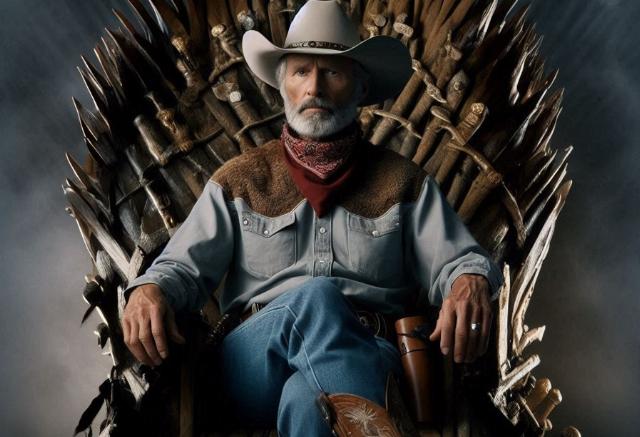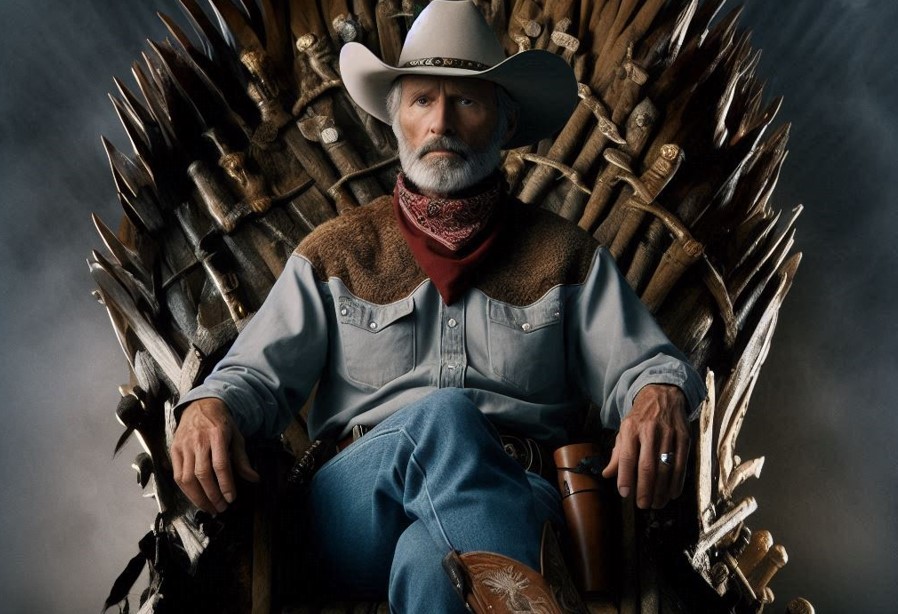

American Thinker
To find out, we first have to acknowledge that they exist and always have existed.Anthony Everitt says, in his biography of Cicero, that ancient Rome didn’t have any official police. What they did have was families. A particularly wealthy family with connections, usually led by a patriarch, would provide “services” such as justice or a loan or a free meal to the people — and those people they served would be known as clients.
Thus, a mob would form around particular fathers and be called up on command, and they would keep the peace and help those in need. At least that’s what they were supposed to do. If you and your buddies had enough clientele, you could also release them on the Senate. Maybe this is why Italians organized for illegal purposes are called “the Mob.”
Thus, inside Rome, there were many governments within government — the obvious effect of laissez-faire policy. When powerful men wanted something done, they didn’t just ask for permission; they called on their henchmen. They wouldn’t just cite laws; they would pull strings. Thus, the idea of the Mafia isn’t just Italian: it’s eternal. It exists everywhere there isn’t a central power useful and effective enough to provide order and basic services — the central message of Leviathan.
Every rich and practical man is a Mafia don in utero. He begins by being useful, and he legitimizes himself by justified acts of violence (he eventually tries to get a monopoly on these). The history of the Dark Ages is a history of government, starting as a mom-and-pop store and turning into Walmart and Amazon. Every empire is an underdog story that went too well — and eventually too far.
This is also the story, in large part, of Yellowstone, Taylor Sheridan’s vision of the Dutton family in Montana. John Dutton is (in essence) a petty lord struggling to maintain his power, his rights, and his patrimony in a land where government is too small in some cases, too large in others, and too susceptible to power interests. The Indians in the show (and their destitution and vulnerability) are a reminder of what happens when your team isn’t strong enough to ward off the other families. The message of the show, over and over again, implicitly and explicitly, is that you can become the new Indian. There is no such thing as “rights.” There’s only power — and those who either can’t or won’t wield it will be lorded over by those who can. Usually for the worse.
This is the whole appeal of the show. In a society where we see the FDA bought and run by Big Pharma, and cities run over by race rioters, and millions invading the border — what else are we supposed to believe, but that titles and rights are a lie? Pontius Pilate said, What is truth?, and we finally understand what he meant. In the past few years, we’ve seen billionaires and Ivy League schools and corporate media decide not only what we can say, but what we can hear, and outright lies aren’t just peddled about obvious facts like race and sex and statistics, but enforced.
We are living in an age of post-law, post-truth, post-democracy: we see strings pulled and rightful winners dethroned. We see the talented pushed aside and the worst of us put at the helm — not by the people they serve, but by shadow-rulers and unelected bureaucrats. We’ve witnessed (most egregiously in the case of The Proud Boys) those standing up for law and order jailed — this injustice itself proclaimed as an act of law and order. We’ve seen good citizens thrown out of work and illegal invaders given free smartphones and thousands for food and rent.
What is legitimate? we ask. Is it something done by the government? Or is it something done for a particular people — a clientele? The idealistic say it’s something done that makes sense for everyone. But is there even an “everyone” — or is the whole world made of petty factions, with opposite interests and limited resources?
These are the big questions that Yellowstone constantly brings up (at least in the first three seasons I’ve seen), and it usually delivers a single answer: that only those mean and rich and organized enough will decide it for us. Deep down, we know they’re right. Law and order and justice are possible only when the orderly and just and fair are in charge — and right now, they aren’t. A constitutional republic is feasible only when the average man is educated and responsible and organized and manly.
Thus, Yellowstone is an appeal to the feudal man inside each of us: not a yearning for the old lords, but the admission that they’ve always existed and that we need them on our side. It capitalizes on the deep-down feeling of the democratic man — atomized and alone in society, his voice and vote drowned out by millions of men faceless as himself — that nobody great is fighting for his way of life, his land, or his particular people. It’s the need for someone, a strong man, a leader, to stand above the crowd and say enough — this is ours. And just as much as this, it’s the need for us to feel as though we have others’ backs and they have ours — even if it risks beatings, or prison, or death. Our side may not be perfect, but at least they’re ours.
This is what the Dutton family signifies: a whole moral order that Americans and Europeans had abandoned for centuries. It’s a way of life that prizes honor and loyalty and authority instead of just compassion and empathy — two things that turned into debasing your own people and selling them out.
But even more than this, the Duttons are a reminder that fighting for what’s “yours” is ugly — and it has always been ugly. But if you don’t do it for yourself, and lord over it rightly, nobody else is going to do it for you. And it’s plainspoken about how that turns out, too.
Jeremy Egerer is the author of Prejudices – a collection of questionable essays on Substack.
<img alt captext="American Thinker” src=”https://conservativenewsbriefing.com/wp-content/uploads/2024/10/who-are-the-lords-of-america.jpg”>





